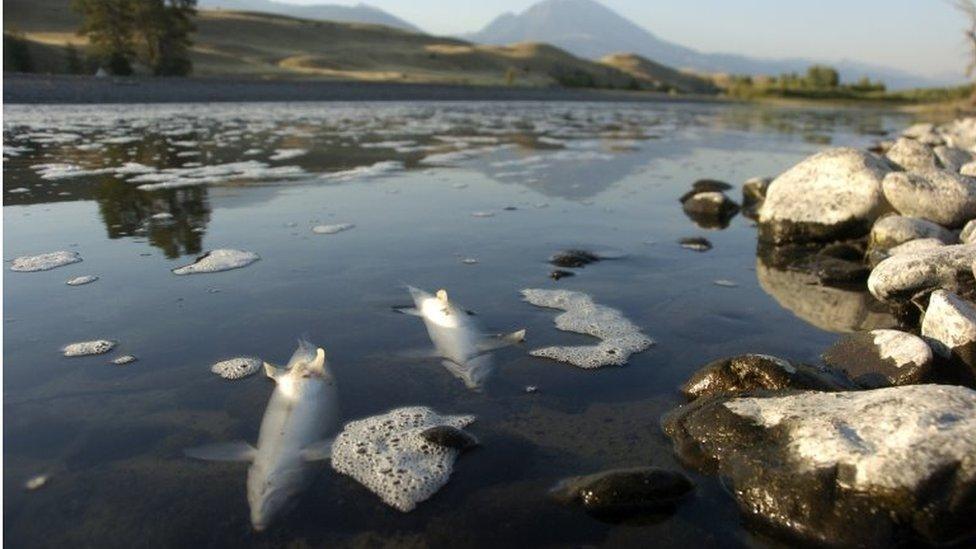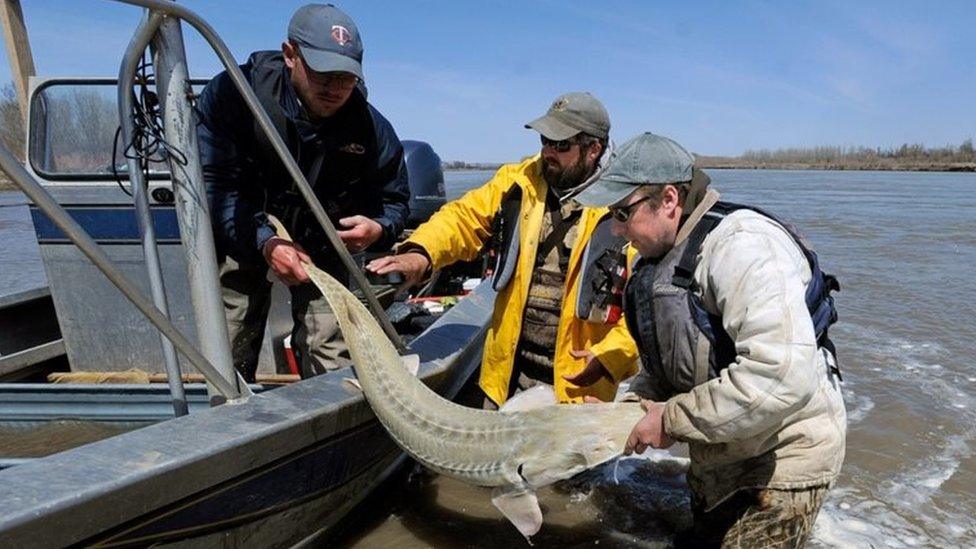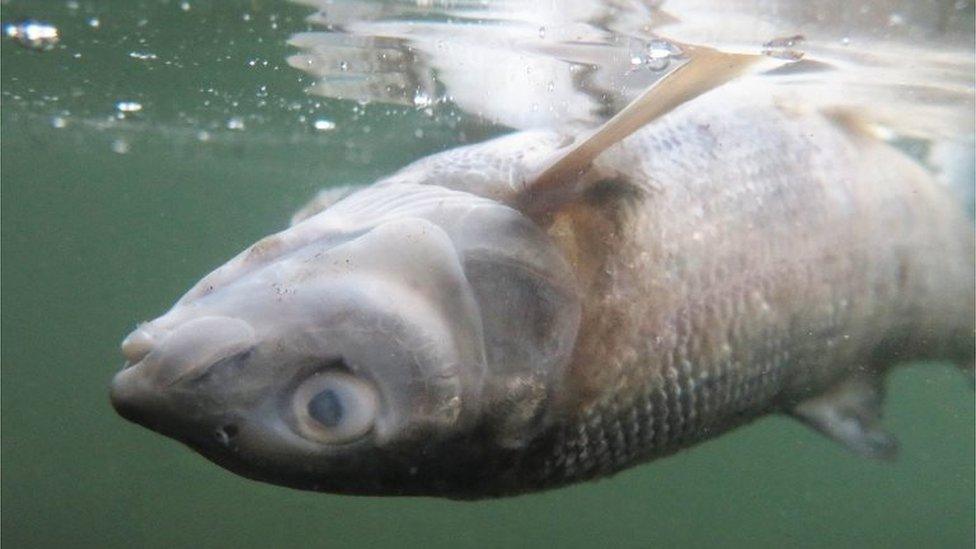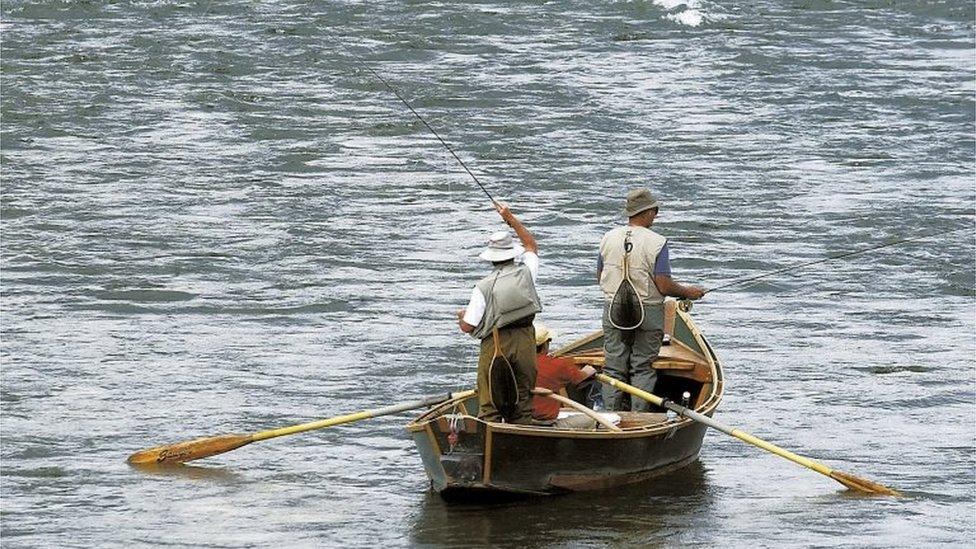Yellowstone River closes indefinitely over deadly parasite
- Published

Officials blame the influx of dead fish on a contagious parasite
Montana officials have indefinitely closed the Yellowstone River over concerns of a deadly parasite that has killed thousands of fish.
A 183-mile-stretch (294km) of the river is closed to prevent infected fish from spreading to other waterways.
Wildlife workers are surveying the area to determine whether the parasite, which causes kidney disease, has infected other fish downstream.
State officials have said the closure could last for weeks or months.
The massive fish kills comes during the popular summer months, which draws tourists to the region for outdoor activities such as fishing and rafting.
The nearby Yellowstone National Park is also celebrating the 100th anniversary of the National Park Service on Thursday, but no closures are planned for inside the park.
More than 2,000 mountain whitefish have been found dead along the banks of the river, but officials estimate about 20,000 more whitefish are presumed to have been killed by the parasite.
Some rainbow trout, a highly sought after fish, have also been affected.

Wildlife officials are testing fish to see if the infection has spread downstream

More than 2,000 mountain whitefish have been found dead

Montana residents fear the closure will harm the state's massive outdoor tourism industry
Montana Fish, Wildlife and Parks officials have also closed several major tributaries while crew collect fish from the Shields, Boulder and Stillwater rivers to see if the infection has spread.
Though biologists have yet to identify the parasite, the problem has been exacerbated by warm water and lower river levels.
Governor Steve Bullock held a roundtable discussion south of Livingston on Tuesday to discuss concerns over the closure, calling it devastating to the state.
The outdoor industry brings more than 64,000 jobs to Montana and rakes in nearly $6bn annually, the governor has said, external.